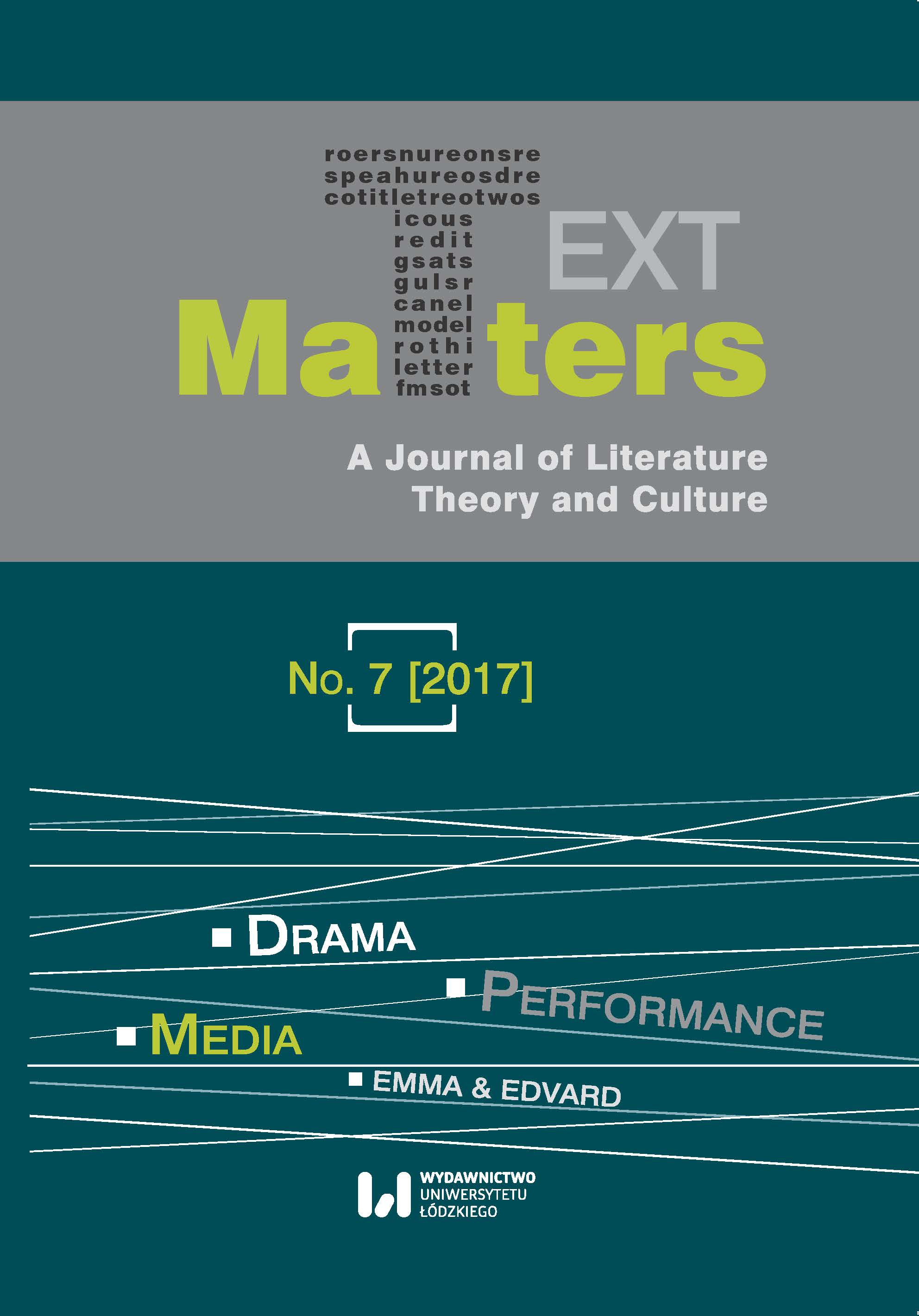Wawel Meets Elsinore. The National and Universal Aspects of Stanisław Wyspiański’s Vision of Shakespeare’s Hamlet
Wawel Meets Elsinore. The National and Universal Aspects of Stanisław Wyspiański’s Vision of Shakespeare’s Hamlet
Author(s): Andrzej WicherSubject(s): Theatre, Dance, Performing Arts, Studies of Literature, Theory of Literature
Published by: Wydawnictwo Uniwersytetu Łódzkiego
Keywords: Hamlet; Wyspiański; Shakespeare; the dilemmas of nationalism; old-fashioned heroism vs. modernity
Summary/Abstract: The aim of this paper is to show the role, the possibilities and the limits of Wyspiański’s national thinking through Shakespeare’s Hamlet. Of particular importance, in this context, is the role the Ghost takes in Wyspiański’s celebrated interpretation of Shakespeare’s Hamlet. By the Ghost we mean the spirit of history, the ghost of a father, the spirit of the fatherland, the voice of the ancestors, and particularly that of the Polish king Casimir the Great, as well as the Holy Ghost and the Evil Spirit because all these aspects of the Ghost belong to Wyspiański’s vision. The play in question bears witness to what the Polish poet calls “the truth of other worlds,” as well as the truth of the theatre, which Wyspiański calls the labyrinth. The poet manages to reduce, to some extent, this difficult truth to the truth of the world he cared most about, that is the present and historical reality of Poland, more specifically the city of Cracow, known as Poland’s spiritual, that is “ghostly,” and only virtual, capital. It is also remarkable that Wyspiański saw the Ghost in Hamlet in the context of other Shakespearean ghosts, apparitions and magicians, such as those that appear in Macbeth, The Tempest, Julius Caesar, A Midsummer Night’s Dream or Richard III. At the same time, Wyspiański realizes that the Ghost, with its irrationalism, offends the spirit of post-medieval times, and as such, is understandably neglected by Hamlet, who for Wyspiański, in anticipation of Harold Bloom, stands for modernity.
Journal: Text Matters: A Journal of Literature, Theory and Culture
- Issue Year: 2017
- Issue No: 7
- Page Range: 214-238
- Page Count: 25
- Language: English

